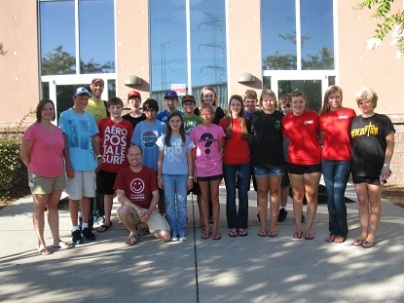The new God’s Not Dead movie has focused the attention of many on the never-ending debate between belief in God and atheism. The central story of the film pits freshman Josh Wheaton against the bullying professor of philosophy, Dr. Radisson. Josh must defend the rationality of his Christian faith or risk failing the class and hurting his future plans. By the end, he convinces his classmates to declare, “God’s not dead.”
Let’s face it: an 18-year old is not going to outgun a professional philosopher when it comes to arguments. If ever this situation were to happen in real life, the best response is a trip to the academic dean’s office to explain that a violation of religious liberty is taking place on campus. But the movie does raise important questions for every Christian to consider. Why do I believe as I do? Does my faith make sense in a world of competing ideas? Could I give reasons for my belief if I were challenged?
We discussed these and other questions in youth on Sunday night. I made the point that, according to Scripture, the best “evidence” for the reality of God is a life of compassionate, selfless service (Matthew 5:14-16; 1 Peter 2:12). Every time we mistreat one another, God might as well be dead to us. But God is shown to be alive for us when we allow God to be alive through us, as the Spirit guides our words and our deeds.
But I also think a mature Christian faith must face the challenge of hearing and responding to other viewpoints (in a spirit of gentleness and respect, of course – 1 Peter 3:15-16). It is better to have an authentically-explored faith with reasons rather than a shallow, blind faith that is based on simply accepting what your parents (or your youth minister!) told you.
With that in mind, I gave the youth a handout with some resources that could help them explore the age-old “God debate” on their own. I’ve reproduced and expanded that list below.
On the God Side:
The following websites can be helpful:
Reasons to Believe
The C.S. Lewis Society
Veritas Forum
And I recommend looking at these books:
Mere Christianity by C.S. Lewis. The classic, entry-level defense of Christianity.
On Guard: Defending Your Faith with Reason and Precision by William Lane Craig, who is the most prominent Christian debater of these issues in the world.
Neutral Ground:
These websites feature interviews and debates with persons of many different opinions:
Closer to Truth
Debate God
The Other Side:
Anyone with Google can find atheist materials anyways. If our faith is real, then it can stand up to these arguments. Read these sources if you feel ready to be challenged.
The Secular Web
The Christian Delusion and The End of Christianity by John W. Loftus, ed. A pair of anthologies that explore multiple arguments for atheism and against Christian faith.
I encourage you to explore the important questions in faith and joy. As Jesus said, “Ask, and you will receive. Seek, and you will find.”

